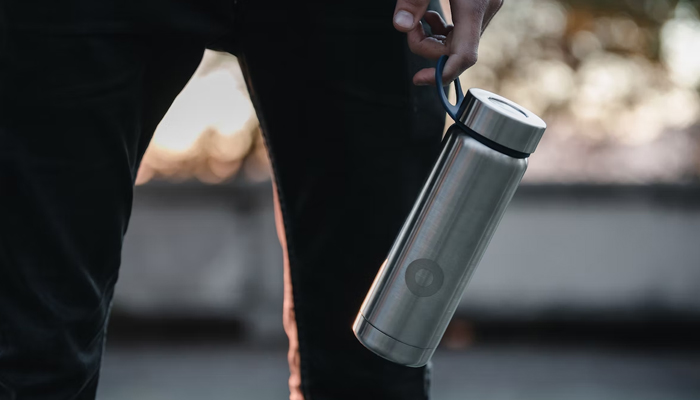Reusable water bottles 'carry more germs than a toilet seat'
Researchers say usable bottles carry two times more germs than objects used in houses
March 14, 2023

Researchers have identified in a new study that reusable water bottles are home to 40,000 times more bacteria than an average toilet seat, according to the report published in HuffPost.
The research by waterfilterguru.com collected samples from different types of reusable water bottles — spout lid, screw-top lid, stray lid and squeeze-top lid — and found bacteria of two types present there — gram-negative rods and bacillus.
Australian Catholic University clinical psychologist and hoarding disorder expert, Associate Professor Keong Yap, was of the view that "they are objects that can't betray us,” as he compared this with the objects children use to soothe anxiety upon which there are high chances of bacteria.
He added that "they are reliable and predictable, unlike people who can hurt us".
The researchers have underlined in their study that gram-negative bacterial infections are resistant to antibiotics and particular types of bacillus bacteria may cause "gastrointestinal infections."
In the study, the researchers compared that the usable water bottles carry two times more germs than the objects used in the houses and more than a similar number of germs carried by the kitchen sinks.
The bottles harbour bacteria four times more than a mouse on the computer and the number is estimated as high as 14 times when compared with the pet’s bowl, the research highlighted.
Imperial College London molecular microbiologist, Dr Andrew Edwards, has noted that as the human mouth harbours different kinds of bacteria, it is not beyond common understanding that drinking bottles also carry these bacteria.
Despite a large number of colonies, these bacteria and germs are not considered harmful to human health, according to a microbiologist at the University of Reading, Dr Simon Clarke.
He maintained that no one has ever reported being ill due to the water bottle, and akin to that, taps also do not pose such a threat to human health.
Bottles which harbour the bacteria, it is likely that they are already inside people’s mouths, Clarke remarked while expressing and giving the message that it is something that people should not worry about.
The study mentions that "the bottles with squeezed-top tend to be cleaner, with a tenth of the number of bacteria as one with a screw-top or straw-fitted lid."
The researchers, in their study, suggested people wash their water bottles on daily basis with hot-soaped water and sanitise them once a week.











